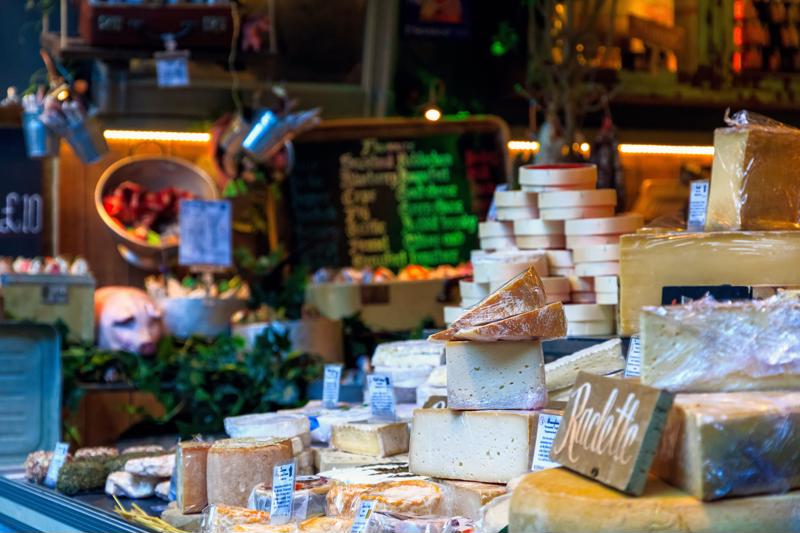Picture a food court at a mall. Now, take away most of the retail stores and all of the fast-casual chains and fast-food joints, and replace them with trendy, artisanal food-and-drink establishments. That’s a food hall. People stop in at hole-in-the-wall-style eateries and enjoy their food in communal dining areas. Many have hailed the setup as the biggest thing since food trucks, and there’s just cause for the comparison. The number of food halls is expected to double in 2019, according to Vox.
This has become particularly evident in Denver. The city, which opened its first food hall in 2013, is expected to cut the ribbon on five more by 2019’s end. Culinary students studying at the Boulder Auguste Escoffier campus can experience the trend first-hand in one of many of the Mile High City’s food halls.
Why people love food halls
The immediate appeal of food halls is that they offer a wide array of food and drink options under one roof. Think of it like a more permanent version of a food-truck lot with plenty of public seating, not to mention year-round shelter for staying warm on cold, wet days. Much like the street-food tradition, vendors are usually spaced out, providing a communal atmosphere where you can walk around in a bustling market.
Take the example of the Denver Central Market, which bills itself as a “gourmet marketplace and food hall.” The RiNo location features everything from wood-fired pizza to smoked meats, fresh seafoods, cocktails, and more. There’s even some multi-vendor collaboration happening. High Point Creamery, an ice cream joint, has partnered with Izzio bakery to create the Ice “Kouign” sandwich. Fresh ice cream from the former is wedged between a rich kouign-amann pastry from the latter. The result is a food hall favorite that people come from far and wide to indulge in.
 Artisan cheeses, craft brews, fresh baked goods, curious desserts and more lie in wait at a food hall near you.
Artisan cheeses, craft brews, fresh baked goods, curious desserts and more lie in wait at a food hall near you.Ambiance is also an important element of food halls. The Denver Central Market has a warm but industrial feel, with brick walls, steel factory-style windows and incandescent Edison bulbs. Zeppelin Station, meanwhile, is more modern. Everything is sleek. The walls are white and the space well-lit, while eaters dine on long, light-grain wood tables that look like they belong in an Apple Store. And if that wasn’t hip enough, the market is part of a building that also acts as a communal work space.
Even with their eclectic array of cuisines, drinks and desserts, food halls have some uniformity of identity. And that’s yet another interesting feature that helps contribute to their unique dining experience. It may also help explain their popularity. Hundreds of food halls exist throughout the U.S. and abroad. London, Baltimore, Chicago, New York City, Austin, Dallas, Detroit, Phoenix and other cities have embraced food halls, leading us to believe that, like food trucks, food halls are here to stay.
Incubation for new restaurants?
For novice restaurateurs, food halls present a unique startup opportunity. Food halls generate a massive amount of foot traffic, but the vendors themselves take up a very small amount of space. This translates to relatively low-cost real estate with high opportunity just by virtue of being in a food hall. One Eleven Food Hall in Chicago was created specifically for the purpose of incubating new restaurants on the South Side of the Windy City, according to Eater. Attending culinary school in Chicago can also be a great chance to take advantage of the city’s innovative dining scene and expose yourself to the new restaurants that are constantly popping up.
Food halls can also represent an opportunity for restaurant groups to experiment with concepts or kick-start new ventures. This makes them breeding grounds for culinary creativity that can be experienced in a communal setting. For all of these reasons and more, culinary arts students in Boulder may want to start checking out the Denver food hall scene.


